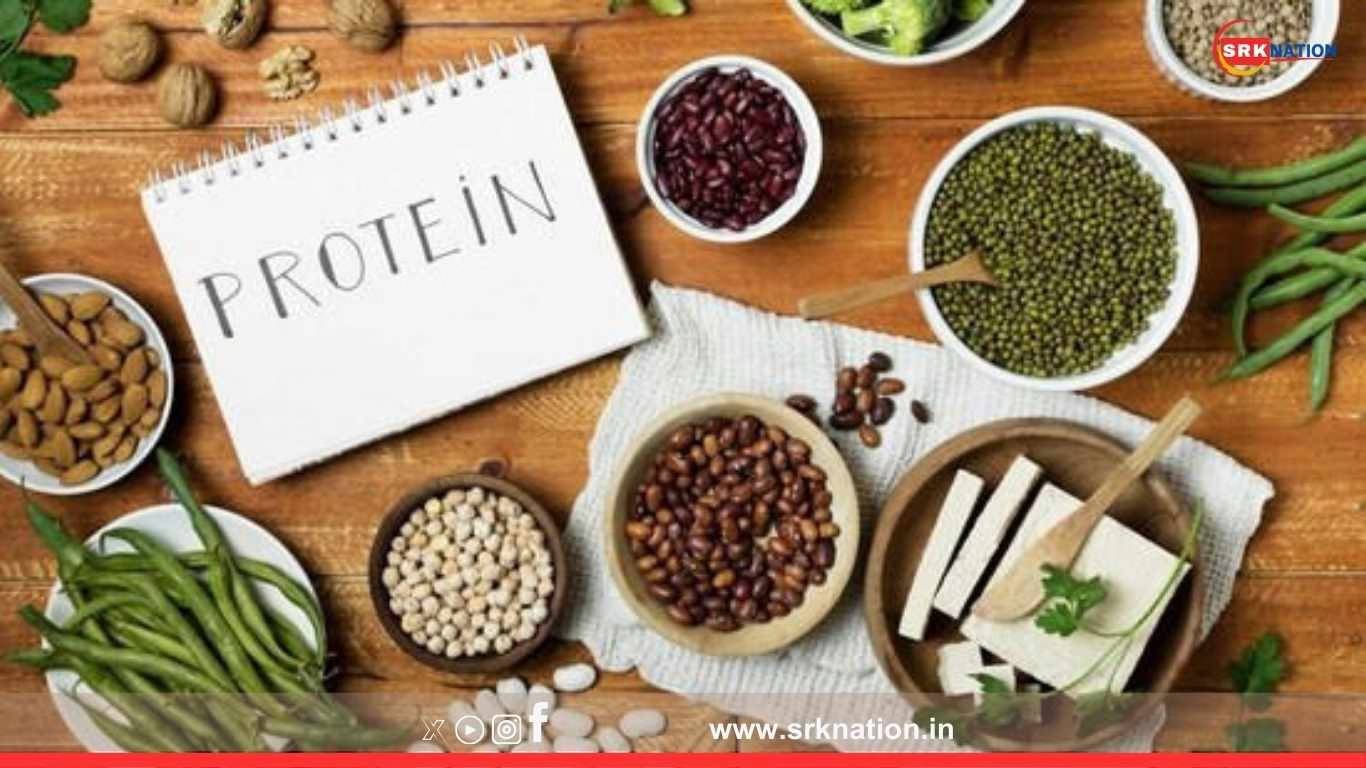In a viral Instagram post that’s sparked widespread discussion among nutritionists and health-conscious Indians, Dr. Saurabh Sethi—a gastroenterologist trained at AIIMS, Harvard, and Stanford—has rated 10 popular vegetarian protein sources based on their impact on gut health. His rankings, shared on September 11, 2025, have surprised many, especially those who rely on flavoured protein bars and ultra-processed meat substitutes.
Dr. Sethi’s assessment is rooted in clinical experience and research on how different protein sources interact with the gut microbiome, digestion, and inflammation. His ratings range from -10 to 10, with natural, whole foods scoring highest and processed alternatives falling drastically short.
—
Top 10 Vegetarian Protein Sources Rated for Gut Health
| Protein Source | Gut Health Rating (Scale: -10 to 10) |
|---|---|
| Greek Yoghurt | 10 |
| Paneer (Cottage Cheese) | 9 |
| Lentils | 8 |
| Quinoa | 7 |
| Chickpeas | 6 |
| Tofu | 5 |
| Edamame | 4 |
| Almonds | Not Rated (assumed neutral) |
| Flavoured Protein Bars (with gums, sweeteners) | -5 |
| Deep-Fried Soy Nuggets / Fake Meats | -10 |
The ratings reflect not just protein content, but digestibility, microbial support, and inflammatory potential.
—
Why Gut Health Matters in Protein Selection
| Gut Health Factor | Impact of Protein Source |
|---|---|
| Microbiome Diversity | Boosted by fermented and fiber-rich foods |
| Digestive Efficiency | Enhanced by whole, minimally processed proteins |
| Inflammation Risk | Elevated by additives, emulsifiers, and deep frying |
| Satiety and Metabolism | Supported by slow-digesting, nutrient-dense proteins |
Dr. Sethi emphasizes that gut health is foundational to immunity, mood regulation, and metabolic balance—making protein choices critical.
—
Expert Insights: What Makes a Protein Gut-Friendly?
| Criteria | Explanation |
|---|---|
| Natural Fermentation | Greek yoghurt contains probiotics that nourish gut flora |
| Minimal Processing | Paneer and lentils retain fiber and nutrients |
| Low Additive Load | Whole foods avoid gums, artificial sweeteners, and preservatives |
| Anti-inflammatory Profile | Lentils and quinoa contain polyphenols and resistant starch |
| Digestive Compatibility | Easily broken down without bloating or gas |
Dr. Sethi warns against falling for marketing hype around protein bars and fake meats, which often contain gut-disrupting ingredients.
—
Flavoured Protein Bars: Why They Scored Negative
| Ingredient Concern | Gut Impact |
|---|---|
| Artificial Sweeteners | Linked to dysbiosis and bloating |
| Gums and Emulsifiers | May weaken gut barrier and trigger inflammation |
| Low Fiber Content | Fails to support microbial diversity |
| High Processing Level | Reduces nutrient bioavailability |
Despite their convenience, these bars are often counterproductive for long-term gut health, especially when consumed regularly.
—
Deep-Fried Soy Nuggets and Fake Meats: The Worst Offenders
| Issue | Gut Health Risk |
|---|---|
| High Saturated Fat | Promotes inflammation |
| Additives and Preservatives | Disrupt gut flora |
| Low Nutrient Density | Poor satiety and metabolic support |
| Texture Modifiers | Linked to digestive discomfort |
Dr. Sethi rates these products at -10, urging consumers to avoid them entirely if gut health is a priority.
—
Healthier Alternatives to Processed Protein Snacks
| Whole Food Option | Benefits |
|---|---|
| Roasted Chickpeas | High fiber, crunchy, satisfying |
| Greek Yoghurt with Nuts | Probiotic-rich, protein-dense |
| Homemade Paneer Cubes | Calcium-rich, gut-friendly |
| Lentil Patties | Fiber-packed, easy to digest |
| Quinoa Salad | Complete protein, anti-inflammatory |
These alternatives offer better nutrient profiles and support digestive wellness without compromising taste or convenience.
—
Vegetarian Protein and Gut Health: What to Prioritize
| Recommendation | Reason |
|---|---|
| Choose fermented dairy | Supports microbiome and digestion |
| Prioritize legumes | Rich in fiber and resistant starch |
| Avoid ultra-processed items | Linked to gut barrier damage |
| Include whole grains | Promote satiety and microbial diversity |
| Limit added sugars | Feed harmful bacteria and trigger inflammation |
Dr. Sethi’s approach encourages a return to traditional, whole-food-based vegetarian diets that naturally support gut health.
—
Conclusion: Gut Health Begins with Smart Protein Choices
Dr. Saurabh Sethi’s ranking of vegetarian protein sources is a wake-up call for health-conscious consumers who rely heavily on packaged bars and faux meats. His clinical insights reveal that gut-friendly proteins are not just about grams per serving—they’re about how the food interacts with your digestive system, microbiome, and long-term wellness.
As India continues to embrace vegetarianism for ethical, cultural, and health reasons, understanding the gut impact of protein sources becomes essential. Whether you’re building muscle, managing weight, or healing your gut, the message is clear: ditch the bars, skip the nuggets, and go back to your roots.
—
Disclaimer: This article is based on publicly available expert commentary, verified social media posts, and clinical insights. It is intended for informational purposes only and does not constitute medical or dietary advice. Always consult a qualified healthcare provider before making changes to your diet.











